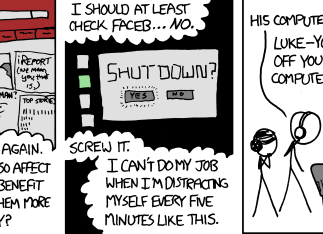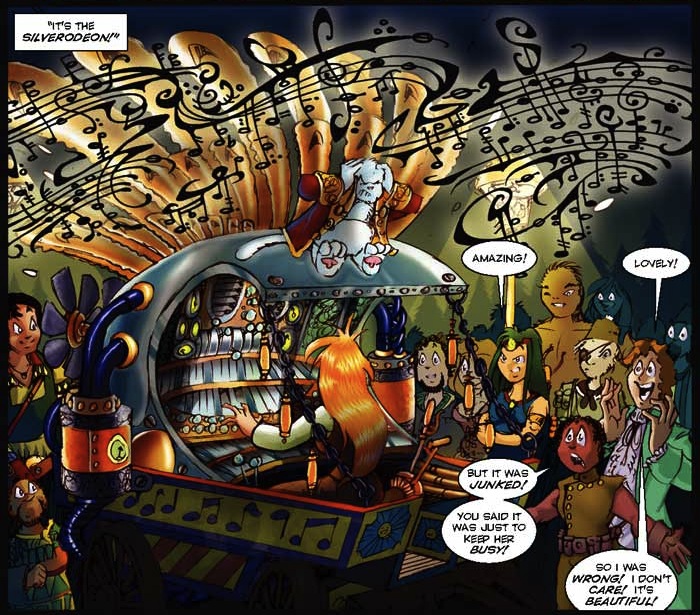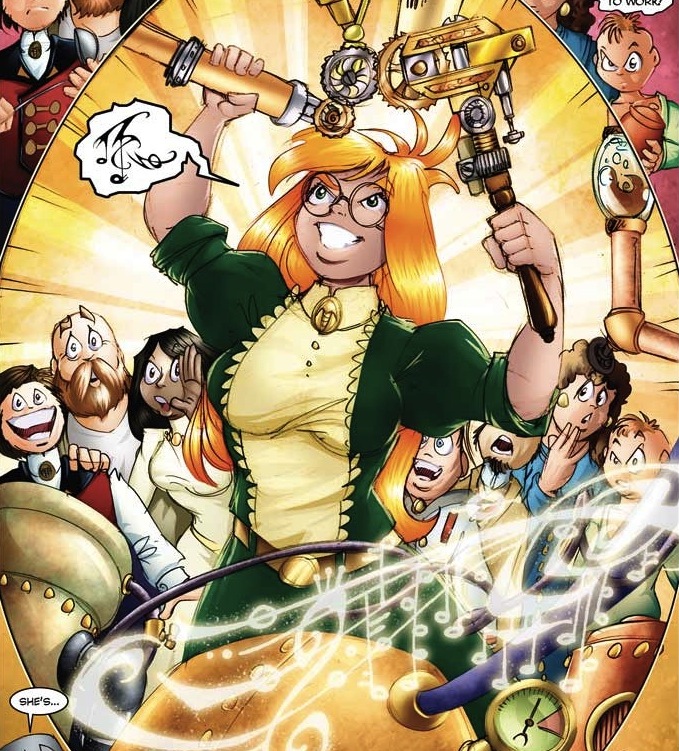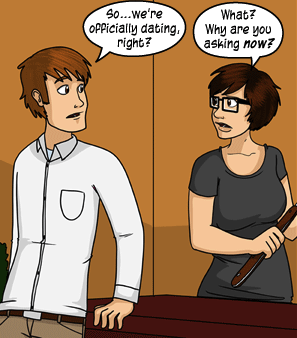On Magic and Talent
One of my “favourite” methods of procrastinating from schoolwork is with webcomics.

Source: XKCD
It’s far too often that when confronted with that quiz I have to study for, or that problem set that needs solving, or that assignment that I really shouldn’t be leaving to the last minute, I’ll instead take a “short break”, come across some new and interesting webcomic, and find myself hooked, clicking through its many-year-long archive one page at a time.
But this isn’t a story about procrastination. That’s just the backdrop. The story I want to tell is one of an interesting contrast, of “magic”, and of talent.
A while back, when procrastinating from doing something-or-other important, I found myself flipping through the pages of Girl Genius.

Source: Girl Genius, Vol. 5, p. 38
The comic is an entertaining one, set in an steampunk-styled alternate universe where brass-colored gear-filled robots are common, airships are the most efficient method of transportation, and folk stories of technological adventurers abound. It tells the story of Agatha, who is a talented inventor, sole heir of the Heterodyne family, and powerful Spark.
Wait, powerful what?
That’s right, a Spark. You see, in this universe, only a small selection of people are able to build complex machines and robots. These people have a power — the “Spark” — that gives them this ability, allowing them to enter a state of extreme focus. They are also frequently insane. But this ability leads them to be some of the most powerful people in the world.

Source: Girl Genius, Vol. 7, p. 44
As an engineering student, this amused me to no end. It seemed to me that this was a warped view of engineering through an artist’s eyes. They see the work of engineers and other technical people, and are amazed at the talent they’re showing and their skill with machinery and technology. Why, it’s practically magical! What they don’t see is the years of study, experience, and practise that it takes to get to that point. They don’t see the pages of notes and practise problems when trying to understand introductory calculus. They don’t see us beating our heads against the desk trying to fix the compiler errors in our first Hello World program. They don’t see us baffled when our calculations show that the elevator would need negative three steel cables to keep it from falling. They see the result of all that, and when you just look at the end result, it really does start to look like magic.
On a separate bout of procrastination, I found myself clicking through the archives of Questionable Content.

Source: Questionable Content #1943
Questionable Content is set in a considerably more mundane world than Girl Genius. It’s about a group of twentysomething indie rock fans, who do silly things like date each other and get into shenanigans. Oh, and there are also sentient talking robots, but they’re incidental to the story, really.
But this time, the content of the comic isn’t what’s important. You see, Questionable Content has been around since 2003, and has always kept a regular schedule. That’s nearly ten years of content, updated 2 or 3 times a week. Girl Genius has been around longer (though it’s only been on the web since 2005), but there’s a significant difference: Phil and Kaja Foglio, the main duo behind Girl Genius, were professional artists and writers before they started on Girl Genius. Jeph Jaques, the man behind Questionable Content, was not. His job was answering phones for a local newspaper. Going through the comic’s archives you can see his progression as an artist, all the way from the beginning.

Marten Reed looking awkward throughout the ages.
It’s not a sudden jump in skill, either. While reading through the archives, the improvement was so gradual that I barely noticed it. At some point I realized, “Hang on, when did the characters stop having pencil-necks?” I jumped several hundred comics back, and only then did the magnitude of the improvement become apparent.
And that’s when it hit me. Engineers think of artists in the same way that the artists of Girl Genius (presumably) think of engineers. We say people have a “talent” for art, but ignore the years of consistent practise that is required to get to that point. The archives of Questionable Content throw this fact into sharp relief, because you’re flipping through years of work over just a few hours, putting the slow improvement of Jeph’s skills into fast-forward. But other artists? You’d have a hard time finding material from the beginning of their career (and they might even be too embarrassed to show you).
Next time you see someone talented, whether it be in math, art, music, programming, or anything else, instead of saying to yourself, “I wish I was that talented,” consider the patience and dedication it took to get to that level. If you truly do want to be that talented, perhaps it would be worthwhile to pick up a pencil, start writing some code, or sit down with your instrument.
And that’s the story of how I learned a valuable lesson about effort while slacking off from my work.